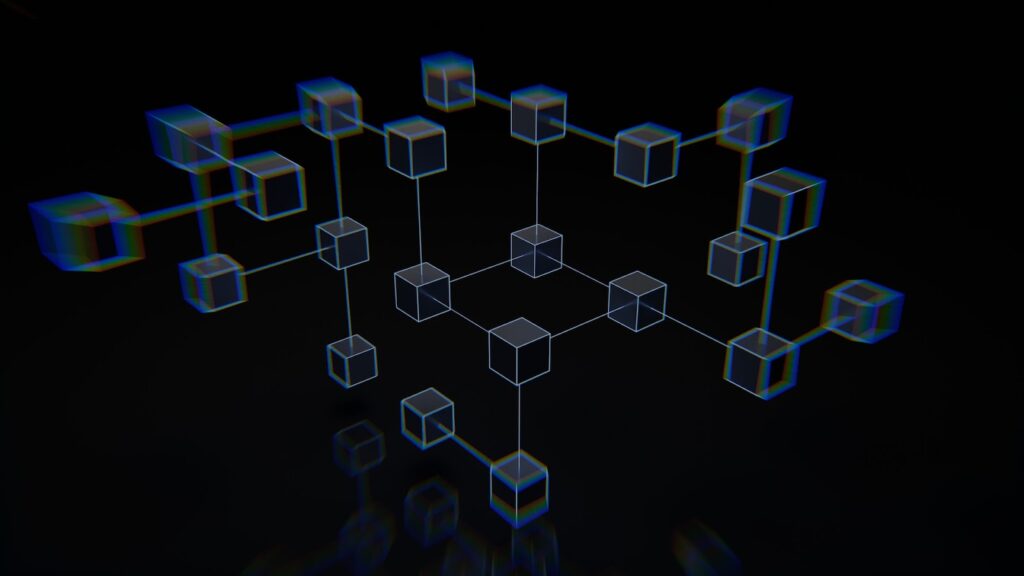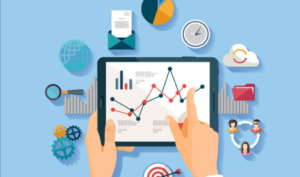
In a world where technology is rapidly evolving, the healthcare industry is no exception. As more and more data are being collected and transferred across different countries, it’s important to ensure that this information is secure. We will explore how blockchain has the potential to revolutionize the healthcare industry by introducing a secure, decentralized system for exchanging data. We’ll look at how this technology can be used globally and what benefits it offers in terms of patient care.
Why Blockchain Matters in Healthcare?
The healthcare system urgently requires an overhaul. Inefficiencies abound, and patients often suffer as a result. Blockchain technology has the potential to solve many of the problems plaguing healthcare.
For one, blockchain can help to improve data security. Healthcare data is some of the most sensitive information out there, and it is often targeted by hackers. With blockchain, each piece of data is encrypted and stored on a decentralized network, making it much more difficult for hackers to access.
Blockchain can also help to streamline administrative processes. The healthcare system is notoriously bureaucratic, and this can lead to delays in care or even errors. With blockchain, all relevant parties would have access to the same information in real-time, reducing the chances of errors or delays.
Finally, blockchain has the potential to empower patients. Presently, patients have little control over their health data. With blockchain, patients could own and control their data, giving them a greater say in their care.
There are many other potential applications of blockchain in healthcare. These are just a few examples of why this technology matters in this sector.
Blockchain Use Cases in Healthcare
There are many potential uses for blockchain in healthcare, ranging from improving the efficiency of clinical trials to streamlining the prescription process. Let’s take a closer look at some of the most promising blockchain use cases in healthcare:
- Clinical Trials: Blockchain could potentially improve the efficiency of clinical trials by creating a secure, decentralized platform for storing and sharing data. This would allow for real-time analysis of data and could speed up the trial process.
- Prescription Process: Blockchain could also streamline the prescription process by creating a secure, decentralized platform for storing and sharing medical records. This would enable doctors and patients to access medical records in real-time, making it easier to track prescriptions and ensure accuracy.
- Security: One of the most compelling use cases for blockchain in healthcare is security. Blockchain technology can provide a secure, decentralized platform for storing and sharing sensitive medical data, protecting patient privacy and reducing the risk of data breaches.
- Supply Chain Management: Another potential use case for blockchain is supply chain management. Blockchain could track the movement of drugs and other medical supplies throughout the supply chain, from manufacturers to hospitals and pharmacies. This would help ensure that drugs are not counterfeit or expired and that hospitals have the supplies they need when they need them.
- Patient Engagement: Blockchain could also be used to engage patients in their healthcare.
Benefits of Blockchain in Healthcare
The potential benefits of blockchain in healthcare are vast and varied. Perhaps most importantly, blockchain has the potential to help decentralize healthcare data. In a world where patient data is increasingly centralized – think EHRs (electronic health records) – this could be a game-changer.
If blockchain technology can create a decentralized database of patient health information, it could give patients more control over their data. They would be able to share their medical history with doctors and researchers without worrying about it being compromised or sold to third parties.
Furthermore, a decentralized database would make it much more difficult for hackers to access sensitive patient data. With the Equifax breach still fresh in our minds, this is a major selling point for blockchain in healthcare.
Another potential benefit of blockchain is that it could help reduce the costs of healthcare administration. The middlemen in the current system – insurance companies, drug companies, etc. – often drive up the cost of care, without providing any real value. If we can cut out these middlemen and create a more direct link between providers and patients, it could lead to significant savings.
Of course, these are just a few of the potential benefits of blockchain in healthcare. As technology continues to develop, we are likely to see even more innovative applications for this revolutionary technology.
Challenges Facing Adoption of Blockchain in the Healthcare Industry
The healthcare industry faces several challenges when adopting blockchain technology.
One of the key challenges is the lack of standardization across the sector. This lack of standardization means that there is no single way to develop or implement a blockchain solution that would be suitable for all healthcare organizations.
Another challenge is the need to ensure that patient data is securely stored and protected. Blockchain solutions need to be able to meet strict data security and privacy requirements to be adopted by healthcare organizations.
Finally, the healthcare industry is also faced with the challenge of developing trust among all stakeholders in a blockchain solution. For a blockchain solution to be successful, all stakeholders must be able to trust each other and the system itself.
Examples of Global Companies Using Blockchain in Healthcare
Some global companies are using blockchain in healthcare. Here are a few examples:
- Philips: Philips is a Dutch technology company that is using blockchain to power its HealthSuite Digital Platform. The platform enables developers to create applications that can be used by Philips’ customers, which include hospitals, health insurers, and other health organizations.
- IBM: IBM is one of the largest technology companies in the world and it is also active in the healthcare sector. The company is working on several blockchain projects in healthcare, including a partnership with the FDA to develop a system for tracking prescription drugs.
- Microsoft: Microsoft is another tech giant that is exploring the use of blockchain in healthcare. The company has partnered with Change Healthcare to develop a blockchain-based system for processing insurance claims.
- Deloitte: Deloitte is a professional services firm that is working on several blockchain projects in healthcare. One notable project is an initiative to create a decentralized network of health data providers.
Potential Opportunities for the Future of Healthcare with Blockchain
The potential for blockchain in healthcare is vast. The technology can improve clinical decision support, ensure data quality and interoperability, and enhance security and privacy protections. Blockchain could also help to reduce costs and improve efficiencies in healthcare delivery.
There are some potential applications for blockchain in healthcare. One area where technology could have a significant impact in clinical decision support. Blockchain could be used to create a decentralized database of evidence-based clinical guidelines that could be accessed by clinicians globally. This would ensure that clinicians have access to the latest evidence-based guidance, and would allow for better clinical decision-making.
Another potential blockchain application is data quality and interoperability. The technology could be used to create a decentralized database of health data that could be accessed by different stakeholders. This would allow for better data sharing between different organizations, and would ultimately lead to improved patient care.
Blockchain could also be used to enhance security and privacy protections in healthcare. The technology could be used to create a decentralized database of health information that would be difficult for hackers to penetrate. Additionally, blockchain could be used to authenticate documents and contracts, which would help to prevent fraud and protect patients’ privacy.
Finally, blockchain has the potential to reduce costs and improve efficiencies in healthcare delivery. The technology can help to streamline administrative processes, such as claims processing and billing.
Conclusion
To conclude, blockchain technology has the potential to revolutionize healthcare in both developed and developing countries. By providing a secure infrastructure for storing and sharing patient data, it can help reduce costs, improve the efficiency and accuracy of treatments, increase transparency and accountability among providers, and empower patients with access to their health records. All these applications are part of why exploring the potential of blockchain in healthcare is so important for global progress.
About the author:
Kamal Kishor Singh is a technology enthusiast based in Muscat, Oman. He’s currently working as a Projects Delivery Manager for a major digital technology company in the Middle East.
With 18 years of experience in blockchain, artificial intelligence / machine learning based data analytics and automation, Kamal has developed several first-in-the-region digital products for the government, banking, and telecom clients.
He has a keen interest in mentoring fresh talent and developing the tech start-up ecosystem in India and the Middle East.
Kamal has a bachelor’s degree in technology from NIT Allahabad and an MBA from IIM Calcutta.
Connect with Kamal on his LinkedIn








